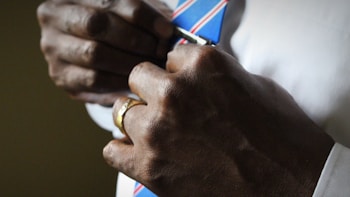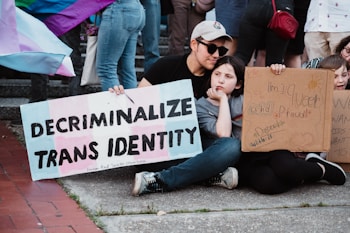 Personal Data in French
Personal Data in French
Explore commonly used vocabularies related to personal data in the French language.

Maroc
In French, 'Maroc' refers to the country located in North Africa, known for its rich history, diverse culture, and significant geographical features such as the Atlas Mountains and the Sahara Desert. The term is often used in various contexts, including travel, cuisine, and arts, reflecting the country's influence and heritage. It is also a common topic in discussions about North African politics and economics.

Vieillesse
In French, 'vieillesse' refers to the later stage of life when a person is considered elderly. It encompasses not only the physical aspects of aging but also the cultural and societal perceptions of this stage of life. The term is often used in discussions about health, well-being, and the contributions of seniors in society. 'Vieillesse' can also evoke themes of wisdom, experience, and the challenges faced as one grows older.

Votre Excellence
In French, 'Votre Excellence' is a formal title used to address high-ranking officials, diplomats, or individuals in positions of authority. It conveys respect and signifies the importance of the person being addressed. This phrase is often used in diplomatic correspondence and formal meetings in France and other French-speaking countries to acknowledge the status of the individual.

Votre Majesté
In French, 'Votre Majesté' is a formal way to address royalty, especially kings and queens. It is used in both written and spoken contexts to show respect and honor to the royal figure. The phrase reflects the traditional etiquette that is observed in royal courts, and it emphasizes the nobility and dignity associated with a monarch.

accorder le divorce
In French, 'accorder le divorce' refers to the legal act of a court or authority allowing two individuals to dissolve their marriage. This phrase is typically used in legal contexts, indicating the formal approval that permits couples to separate and terminate their marital obligations in accordance with specific legal procedures.

adolescent
The French word 'adolescent' refers to a young person who is in the stage of development between childhood and adulthood, typically between the ages of 13 and 19. It is used in various contexts, such as education and social discussions, to describe the behaviors, challenges, and experiences associated with this age group.

adresse
The French word 'adresse' is used to refer to a location or a place where someone lives or works. It is used in the same way as the English word 'address'. For example, 'Quelle est votre adresse?' means 'What is your address?'
Example sentences with adresse →
alias
In French, the word 'alias' is used similarly to its English counterpart, referring to an alternative name or identity that a person or thing may use. It can describe a pseudonym adopted by a writer or artist, or a name that replaces a person's actual name in contexts such as law or computing. The pronunciation remains quite similar, and it is commonly found in discussions about identity, privacy, or representation.

allemand
The French word 'allemand' refers to the German language or anything related to Germany, such as culture, people, or nationality. It is used in the same way that 'German' is in English, to describe someone from Germany or things associated with the country.

annuler un mariage
In French, 'annuler un mariage' is used to describe the legal process of declaring a marriage null and void, meaning it is as if the marriage never existed. This term can apply in various contexts, such as when a marriage is found to be invalid due to legal reasons or when one or both parties did not fully consent to the union.

appel par nom
In French, 'appel par nom' refers to a specific programming concept where a function is called with the name of an argument rather than its value. This allows for more flexible function definitions and can lead to clearer code, especially when dealing with optional parameters. The term is often used in discussions about programming languages and their features.

avoir de nombreuses années
The French phrase 'avoir de nombreuses années' is often used to refer to a person or entity that has existed for a long time, indicating both age and experience. It can be used to emphasize wisdom or the rich history associated with something that has 'many years' behind it.

bisexuel
The French word 'bisexuel' refers to a person who is attracted to both men and women. It is used in the same context as in English, often in discussions about sexual orientation and identity. This term encompasses not only romantic affection but also emotional and sexual attraction to individuals of both sexes.

changement de nom de famille
In French, 'changement de nom de famille' refers to the legal process of changing one's family name, often due to marriage, divorce, or personal preference. This term is commonly used in legal contexts and can be found in official documents and discussions about identity and family laws.

changer de direction
The phrase 'changer de direction' is used in French to describe the act of altering one’s course or path. It can apply to physical movement, such as when driving or walking, or metaphorical contexts, such as changing one's plans or thoughts. This expression emphasizes the need to shift from one trajectory to another, highlighting adaptability and responsiveness to new circumstances.

changer de nom
In French, 'changer de nom' is used to refer to the act of adopting a new name, whether for personal reasons, legal purposes, or rebranding. It applies to individuals and organizations alike, where one decides to adopt a different name to reflect a new identity or status.

code postal
In French, 'code postal' refers to the numerical code used to identify specific geographic areas for sorting and delivering mail. It is similar to the English term 'zip code' and is used in addresses to ensure that mail is delivered to the correct location. The code is typically composed of five digits, and it is important for efficient postal service.

couple de fait
In French, 'couple de fait' refers to a couple who live together and share a domestic life without being legally married. This term is commonly used to describe relationships that are recognized as stable and long-term, similar to a marriage, but without the formal legal status. It emphasizes the practical and social aspects of the relationship rather than the legal ones.

célibataire
In French, the term 'célibataire' refers to an unmarried person, particularly a man, similar to the English word 'bachelor.' It is commonly used to describe someone who is not in a romantic relationship or not living with a partner. The word emphasizes the state of being single and can sometimes carry connotations about social status or lifestyle choices.

célibataire en or
The term 'célibataire en or' refers to a wealthy, unmarried man who is attractive and desirable. In French culture, similar to English, this phrase conveys the notion of a bachelor who is not only financially successful but also has qualities that make him an appealing partner. It often implies that such a man has many admirers and is sought after in romantic contexts.

date de naissance
The French phrase 'date de naissance' is used to refer to the specific day, month, and year when a person was born. It is commonly used in various official documents, forms, and applications to identify someone's age and personal details. In conversation, it might also be asked as part of getting to know someone, similar to English.

demande de séparation
In French, 'demande de séparation' is a legal term used when one party is seeking to formally end a relationship or marriage. It implies that the individual is making a request to the court or relevant authority to acknowledge their wish for separation, often involving the division of assets, responsibilities, and living arrangements. This term is significant in legal contexts, particularly in family law, where clear communication of intentions is crucial.

demander le divorce
In French, 'demander le divorce' is used to express the action of officially requesting to terminate a marriage. This phrase is commonly utilized in legal contexts and can signify a desire to end a relationship, often accompanied by discussions regarding custody, asset division, and other related matters. It reflects both an emotional and legal dimension of the divorce process.

deuxième nom de famille
In French, 'deuxième nom de famille' refers to a person's secondary last name, often used in cultures where individuals may have multiple family names. This can occur due to marriage or family lineage, and it is important in formal contexts such as legal documents or official identification.

divorcer
In French, the verb 'divorcer' is used to describe the process of legally ending a marriage. It is commonly used in phrases such as 'Je vais divorcer' (I am going to get a divorce) or 'Ils ont divorcé' (They got divorced). The term captures both the act of seeking and finalizing a divorce.

divorcé
The French word 'divorcé' is used to describe a person who has legally ended their marriage. It can refer to both males and females, although the feminine form is 'divorcée.' In French, this term can be used not only to identify someone's marital status but also in various contexts, such as discussing family matters or personal relationships.

déménagement
The French word 'déménagement' refers to the process of moving one's belongings from one place to another, typically when relocating to a new home. It encompasses not only the physical act of transporting items but also the preparations involved, such as packing and organizing. In France, the term is commonly used in the context of changing residences, and it can also refer to the act of leaving a particular neighborhood or area.

déplacement
In French, the word 'déplacement' refers to the act of moving from one area to another. It can be used in various contexts, such as physical movement, travel, or even abstract situations like changes in position or location. The term is commonly used in everyday conversation, as well as in formal settings, to describe various kinds of movement.

In French, 'e-mail' is used similarly to how it is in English, referring to electronic mail. It is commonly used in both written and spoken contexts to convey messages electronically via the internet. The term can be used as both a noun to describe the message itself and as a verb to describe the action of sending an email.

enfance
The French word 'enfance' (childhood) is a feminine noun that is generally used to refer to the period in a person or animal's life from birth until they reach the age of maturity. Like in English, it is often used in a nostalgic or sentimental context.
Example sentences with enfance →